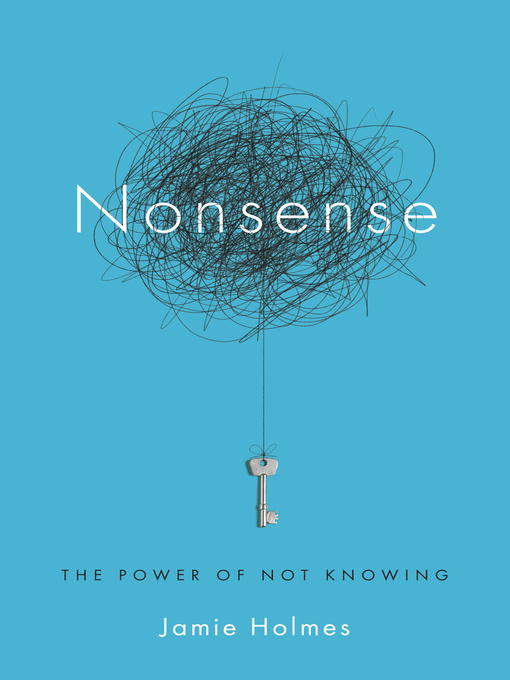
Nonsense
The Power of Not Knowing
کتاب های مرتبط
- اطلاعات
- نقد و بررسی
- دیدگاه کاربران
نقد و بررسی

August 1, 2015
New America Foundation Future Tense fellow Holmes, a former research coordinator in the department of economics at Harvard, debuts with a provocative analysis of the roots of uncertainty. The need for closure is a mainstay of American life-and not only after mass shootings or other tragic events. Confronted by ambiguity in our personal or professional lives, we seek answers. In the face of perceived threats, we demand absolutes. "In an increasingly complex, unpredictable world," writes the author, "what matters most isn't IQ, willpower, or confidence in what we know. It's how we deal with what we don't understand." In this well-written book based on the latest findings in social psychology and cognitive science, Holmes explains that we are all naturally ambivalent. When we are confused, our minds either snap shut (relying on preconceptions) or unlock (allowing us to innovate). Offering innumerable examples, the author describes instances in which we try to avoid uncertainty and have a dangerously high need for closure-a critical negotiation, inconclusive medical results, or a changing business environment-and others in which we try to maximize the benefits of harnessing ambiguity, whether to help students solve problems with no clear answers or to discover new ways to cope with failure and success. Holmes shows how people and organizations have dealt with ambiguity, from the FBI's 1993 assault on the Branch Davidian compound in Waco, Texas, to the fashion industry, where manufacturers and retailers tried to meet the perplexing uncertainty over changing skirt hemlines in the 1970s. Most telling are the author's discussions of hostage negotiations, which demand the patient skills of professionals with a low need for certainty in confusing situations. Ambiguity can make medical problems more agonizing, make the pleasure of mystery novels more enjoyable, and lead to devastating prejudices in our social lives. The author's bright anecdotes and wide-ranging research stories are certain to please many readers.
COPYRIGHT(2015) Kirkus Reviews, ALL RIGHTS RESERVED.

Starred review from September 1, 2015
This isn't really about "nonsense," as in silliness, but about ambiguity--when it's helpful, when it's not; and how people react to it for good or ill. Holmes, a fellow at the New America think tank, describes a teacher who achieved great success by removing as much ambiguity as possible from the learning environment, patient advocates who argue that physicians often order unnecessary tests and procedures from an unreasoning quest for answers (even when the knowledge doesn't add to the patient's well-being), and a clothing manufacturer who has had enormous success building a company that can quickly respond to current fashion, rather than attempting to predict future trends, among many others. VERDICT The many fans of the work of Malcolm Gladwell (e.g., The Tipping Point; Blink) will enjoy this readable and thought-provoking work.--Mary Ann Hughes, Shelton, WA
Copyright 2015 Library Journal, LLC Used with permission.

September 1, 2015
Ambiguity is everywhere. On both an individual and a societal level, we are constantly confronted with unclear situations, and how we handle them can have significant consequences. Holmes, a fellow at nonprofit New America, demonstrates how uncertainty intersects with everyday life in surprising ways, from the doctor's exam room to the classroom. Much of the research on cognitive dissonance and other psychological insights, he argues, is all related to how the mind handles conflicting information. He illustrates the findings of studies with compelling real-world examples, from the creation of Mad Libs to the 1993 standoff at Waco. He skews heavily on the storytelling, using the science to confirm his claims. By clearly staking out his thesis and exploring the topic with a dash of mischief, Holmes convincingly demonstrates that stressful situations can cause us to cling more steadfastly to our beliefs and discard unwelcome information, but he also offers a primer on how to combat these natural tendencies. While life is full of nonsense, managing our response to uncertainty makes all the sense in the world.(Reprinted with permission of Booklist, copyright 2015, American Library Association.)

























دیدگاه کاربران